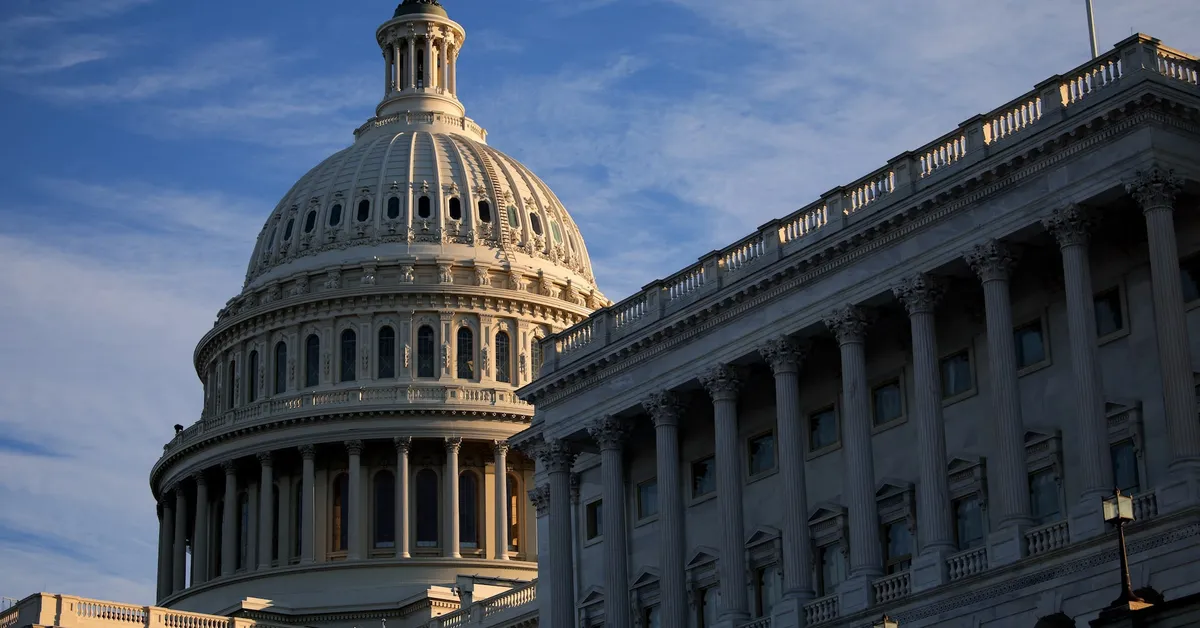
WASHINGTON, June 16 (Reuters) - In a significant move, U.S. Senate Republicans have unveiled proposed changes to President Donald Trump's comprehensive tax-cut and spending bill. This new legislation aims to make certain business-related tax breaks permanent while imposing stricter limits on the deduction for state and local income taxes. These modifications have sparked frustration among some House of Representatives colleagues, as the differing versions of the bill in the two narrowly Republican-controlled chambers of Congress could hinder party leaders' efforts to pass this pivotal piece of legislation, which is essential to Trump's domestic agenda, before the self-imposed July 4 deadline.
The proposed changes encountered early resistance from two factions within the Senate Republican caucus. Some members are advocating for deeper spending cuts to address the growing federal deficit, while others are focused on preserving vital social safety nets, particularly the Medicaid healthcare program designed for lower-income Americans. Senator Ron Johnson of Wisconsin, a prominent deficit hawk, voiced his concerns, stating, "The problem is, it just simply doesn't meet the moment. It's just inadequate." He indicated he would oppose the bill unless further spending cuts are made, emphasizing the need to address long-term deficit and debt issues seriously.
One of the most significant alterations in the Senate proposal involves maintaining the current $10,000 cap on federal deductions for state and local income taxes. This cap is notably lower than the $40,000 limit approved by the House last month, leading to immediate backlash from House Republicans whose constituents would benefit from the higher deduction. A committee document indicates that the deduction cap is still subject to ongoing negotiations, highlighting the contentious nature of the discussions.
Additionally, the Senate Finance Committee's proposal includes a cap on tax breaks related to tipped income and overtime pay, which were promised by Trump during his 2024 campaign. Under the House version, individuals earning up to $160,000 annually could claim deductions on tipped income, while the Senate version would permit a deduction of up to $25,000, phasing out for incomes exceeding $150,000 for individuals and $300,000 for married couples. For joint filers, Senate Republicans propose a $25,000 deduction for overtime pay.
The legislation extends the 2017 tax cuts, which represent Trump's most significant legislative achievement during his first term, while also increasing spending for military and border security. An essential provision of the bill raises the federal government's self-imposed debt ceiling by $5 trillion, a necessary step Congress must undertake this summer to prevent a catastrophic default on the nation's staggering $36.2 trillion debt.
Republican Senate Finance Committee Chairman Mike Crapo of Idaho expressed optimism about the bill's progress, stating, "I look forward to continued coordination with our colleagues in the House and the Administration to deliver President Trump’s bold economic agenda for the American people as quickly as possible." With a slim 53-47 Senate majority and a 220-212 edge in the House, Republicans can afford to lose few votes to secure passage of a bill that faces unified Democratic opposition.
The proposed Senate changes have also stirred controversy regarding Medicaid. The provisions would effectively cap a health-care-related fee, known as a provider tax, at 3.5% by 2031, down from the current 6% for states that expanded Medicaid under the Affordable Care Act. This move has drawn criticism from some Republicans, including Senator Josh Hawley of Missouri, who warned that it could jeopardize funding for rural hospitals, stating, "I'm alarmed by this... This is a whole new system that is going to defund rural hospitals, effectively." Prior to the Senate's revisions, the nonpartisan Congressional Budget Office projected that the legislation would leave approximately 4.8 million Medicaid recipients without health insurance.
Top Senate Democrat Chuck Schumer criticized the bill, claiming that the cuts to Medicaid are "deeper and more devastating" than those outlined in the House's version of the legislation. Furthermore, the Senate's approach includes more aggressive phasing out of subsidies for electric vehicles and green energy initiatives established during the Biden administration, leading to a decline in shares of U.S. solar energy companies in extended trading.
The proposal also aligns with a key priority of Senate Republican leadership by making specific business tax breaks permanent. This includes full expensing for domestic research and development, as well as new capital investment for machinery and equipment, contrasting with the temporary nature of these tax breaks in the House version. Additionally, a retaliatory tax aimed at foreign investors, which has raised concerns among some business groups, remains largely unchanged from the House's proposal, although it would be delayed by a year to 2027.
The Senate is now set to debate the revised text of Trump's One Big Beautiful Bill Act. For the bill to become law, the Senate must pass it and send it back to the House for another vote before it reaches Trump's desk. Senator John Hoeven of North Dakota remarked on the ongoing nature of the legislative process, stating, "It's still a work in progress. People are still offering up ideas. But each time, they're going to improve it and getting us closer... it'll still change some."
As the negotiations continue, the outcome of this legislation will play a crucial role in shaping the economic landscape and healthcare provisions for millions of Americans.